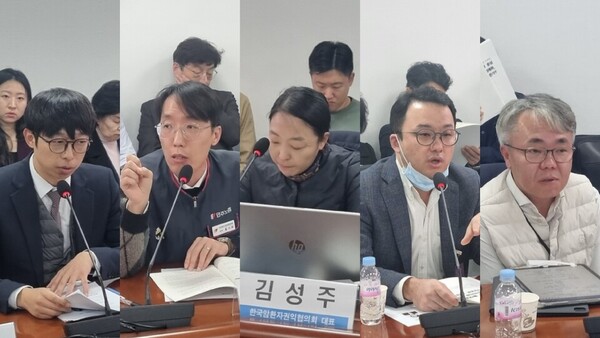As the government moves to legislate telemedicine, concerns are rising among the pharmaceutical industry, patient groups, and civic organizations about the dominance of private, for-profit platforms. They are urging the creation of a publicly managed telemedicine platform instead.
"Telemedicine should focus on public, not private, platforms," consumer representatives said at the National Assembly forum, "Is Legislating For-Profit Platform-Centric Telemedicine Acceptable?"
The Movement Headquarters to Stop Medical Privatization and Realize Free Healthcare held Tuesday's forum with lawmakers, including Rep. Kim Seon-min (Rebuilding Korea Party) and Reps. Nam In-soon, Lee Su-jin, Seo Young-seok, and Jeon Jin-sook (Democratic Party of Korea).
"The telemedicine bill must mandate a public platform," said Jang Bo-hyun, Policy Director of the Korean Pharmaceutical Association, warning that market-led telemedicine could increase regional inequality.

Jang noted that, despite the system's aim to support vulnerable groups and unmet medical needs, services are concentrated in urban areas.
"Korea's national health insurance and electronic prescriptions enable a public telemedicine platform. We must create a system that serves public value, not merely business interests," Jang added.
Hong Seok-hwan, Policy Director of the Korean Confederation of Trade Unions, said, "Private platforms like Doctor Now and GoodDoc are profit-driven and target urban residents in their 20s to 40s, not vulnerable groups."
Hong added, "The government must resist corporate influence, restrict private market entry, and strengthen public platforms."
He said the Korea Health Information Service (KHIA) already supports community and home treatment systems, providing a foundation for a public telemedicine platform.
Kim Sung-joo, head of the Korea Severe Disease Association, also stressed that telemedicine must use a public platform.
"Private platform-centered telemedicine, as discussed, risks undermining public healthcare and stability," Kim said. "Patients with severe illness and disabilities need prompt doctor attention and ongoing treatment."
Conversely, while the medical community also voiced concerns about private telemedicine platforms, it maintained a cautious approach toward expanding government-led public medical platforms.
"While profit is natural, excessive pursuit undermines healthcare's value," said Kim Choong-ki, Policy Director of the Korean Medical Association. "Telemedicine companies stoke public distrust by prioritizing profit over care."
Kim said, "We support a public platform, but a government-funded model struggles to meet public demand."
He said private, public, and professional sectors must clearly define roles, prioritize medical value, and maintain balance.
Meanwhile, the government has maintained that institutionalizing telemedicine cannot be delayed any longer. To address these concerns, it plans to strengthen management of private platforms.
"We should not ban private services entirely," said Seong Chang-hyeon, Director of the Health and Medical Policy Division, Ministry of Health and Welfare. "Since creating a public platform is feasible, we should institutionalize and regulate it legally."
Instead of banning private platforms, the government will use reporting and certification, monitor vulnerable groups, and ensure thorough oversight, Seong said.
Related articles
- Telemedicine is ‘not an option but a must,’ Asian experts say at Seoul meeting
- Type 1 diabetes patients gain hospital-level access to telemedicine
- Civic group urges to end pilot telemedicine program, citing it as a ‘failure’
- Telemedicine stays after healthcare crisis, but key restrictions return
- Korean Telemedicine Society to host 1st Asian telemedicine society conference ATS 2025 next week
- 'Telemedicine should focus on tech readiness, not social consensus’
- Public health doctors urge reform of service system to sustain regional care

